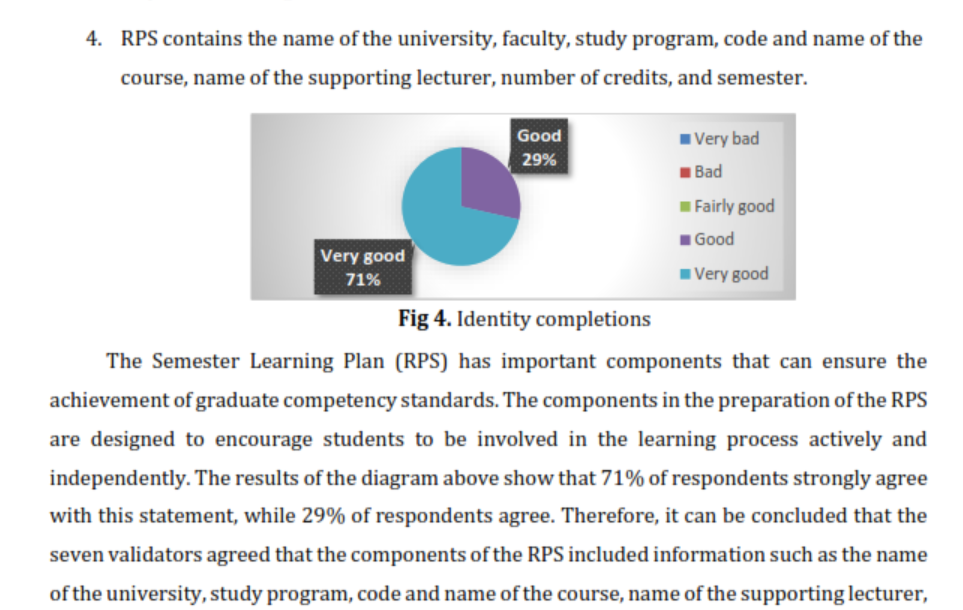Substantive feasibility of the implementation of the final product development of ecolinguistic learning model in the perspective of green ecology
DOI:
https://doi.org/10.26555/bs.v43i2.475Keywords:
green ecology, learning models, naturalistic ecolinguistics, metaphorical ecolinguisticsAbstract
Damage to the natural environment caused by exploitation, deforestation and uncontrolled deforestation is also a major concern. The Indonesian Language Education Study Program at the Masters Program, Sanata Dharma University has included the Ecolinguistics course since its establishment in 2015. The purpose of this research was formulated as follow: Describe the feasibility of developing a Naturalistic Ecolinguistic learning model in the perspective of Green Ecology. The research and development steps follow the model proposed by Borg and Gall consisting of the following stages: a) The initial stage involves research and data collection by collecting relevant information to formulate a product design framework. b) The planning stage involves making a product development plan. c) The product draft development stage involves the initial development of the ecolinguistic learning model design. d) The initial field trial phase involved limited field trials to collect data to be used as a basis for product design revisions. e) The main product revision stage. f) The main field trial phase involves a wider trial of the ecolinguistic learning model design product. g) The product improvement stage based on field test results involves product design improvements based on input from field trials. h) The field implementation test phase involves testing the product design. i) The final product improvement stage. j) The dissemination and implementation phase focuses on disseminating the ecolinguistic learning model. The research results showed that 43% of respondents stated that it was suitable for use with revisions according to the notes and 57% of respondents stated that it was suitable for use without revisions. Thus, it can be concluded that the ecolinguistic learning model for the Indonesian Language Education Masters Program is feasible to implement without revision.
References
Bicciato, S. (2022). Materials and resources for teaching italian pragmatics. Italiano linguadue, 13(2). https://doi.org/10.54103/2037-3597/17160
Burger, C. (2022). Humor styles, bullying victimization and psychological school adjustment: Mediation, moderation and person-oriented analyses. International Journal of Environmental Research and Public Health, 19(18). https://doi.org/10.3390/ijerph191811415
Chen, S. (2016). Language and ecology: A content analysis of ecolinguistics as an emerging research field. Ampersand. https://doi.org/10.1016/j.amper.2016.06.002
Danylych, V. (2017). The notion of stylistic paradigm in the language. Problems of semantics, pragmatics and cognitive linguistics. https://doi.org/10.17721/2663-6530.2017.31.03
Dawes, J. (1999). Language, violence, and human rights law. Yale JL & Human. https://doi.org/10.3868/s050-004-015-0003-8
Elliott, J. C. (2015). A review of teaching models: Designing instruction for 21st century learners. In Education Review // Reseñas Educativas, 22. https://doi.org/10.14507/er.v22.1865
Gall, M. D., Borg, W. R., & Gall, J. P. (1996). Educational research: An introduction, 6th ed. In Educational research: An introduction, 6th ed.
____________________. (2006). Identifying a research problem, question and searching. Educational Research: An Introduction.
Gea, T. B., & Rahardi, K. (2021). Leksikon tumbuhan obat tradisional dalam tuturan masyarakat Nias, Sumatera Utara: Kajian ekolinguistik (The lexicon of traditional herbal medicine in Utterance Of Nias Community, North Sumatera: Ecolinguistics studies). SALINGKA, 18(1). https://doi.org/10.26499/salingka.v18i1.342
Gibbon, D. (2009). Gesture theory is linguistics: On modelling multimodality as prosody. PACLIC 23 - Proceedings of the 23rd Pacific Asia Conference on Language, Information and Computation, 1.
Herrmann, S. M., & Hutchinson, C. F. (2005). The changing contexts of the desertification debate. Journal of Arid Environments. https://doi.org/10.1016/j.jaridenv.2005.03.003
Hickey, C., & Roderick, M. (2022). When jokes aren’t funny: Banter and abuse in the everyday work environments of professional football. European Sport Management Quarterly. https://doi.org/10.1080/16184742.2022.2124299
Huang, F. (2022). Multimedia wireless-network-based model for smart interactive translation teaching. Wireless Communications and Mobile Computing. https://doi.org/10.1155/2022/1940432
Jaszczolt, K. M. (2018). Pragmatics and philosophy: In search of a paradigm. Intercultural Pragmatics. https://doi.org/10.1515/ip-2018-0002
Kasa, I. W. (2011). Local wisdom in relation to climate change. J. ISSAAS.
Kivunja, C., & Kuyini, A. B. (2017). Understanding and applying research paradigms in educational contexts. International Journal of Higher Education. https://doi.org/10.5430/ijhe.v6n5p26
Knewstubb, B. (2016). The learning–teaching nexus: Modelling the learning–teaching relationship in higher education. Studies in Higher Education, 41(3). https://doi.org/10.1080/03075079.2014.934802
Kurnianta, P., & Maharani, S. D. (2020). Refleksi aksiologis atas teori bahasa noam chomsky dan m.a.k halliday. Diksi, 28(2). https://doi.org/10.21831/diksi.v28i2.33080
Leher, S. P. (2018). Dignity and human rights: Language philosophy and social realizations. https://doi.org/10.4324/9781315161365
LeVasseur, T. (2015). Defining “Ecolinguistics?”: Challenging emic issues in an evolving environmental discipline. Journal of Environmental Studies and Sciences. https://doi.org/10.1007/s13412-014-0198-4
Luardini, M. A., & Simbolon, M. (2016). Ecolinguistics for teaching English. Asian EFL Journal.
Mey, J. L. (2017). The pragmatics of metaphor: An ecological view. https://doi.org/10.4324/9781315687391
Muller, D. A., Lee, K. J., & Sharma, M. D. (2008). Coherence or interest: Which is most important in online multimedia learning? Australasian Journal of Educational Technology.
Picket, B., & Dando, R. (2019). Environmental immersion’s influence on hedonics, perceived appropriateness, and willingness to pay in alcoholic beverages. Foods, 8(2). https://doi.org/10.3390/foods8020042
Rummukainen, M. (2012). Changes in climate and weather extremes in the 21st century. Wiley Interdisciplinary Reviews: Climate Change. https://doi.org/10.1002/wcc.160
Shin, Y. S., Masís-Obando, R., Keshavarzian, N., Dáve, R., & Norman, K. A. (2021). Context-dependent memory effects in two immersive virtual reality environments: On mars and underwater. Psychonomic Bulletin and Review, 28(2). https://doi.org/10.3758/s13423-020-01835-3
Stephenson, J. (2008). The cultural values model: An integrated approach to values in landscapes. Landscape and Urban Planning. https://doi.org/10.1016/j.landurbplan.2007.07.003
Wei, R. R. (2018). Ecolinguistics: Language, ecology and the stories we live. Southern African Linguistics and Applied Language Studies. https://doi.org/10.2989/16073614.2018.1547983
Wells, G. (1994). The complementary contributions of Halliday and Vygotsky to a “language-based theory of learning.” Linguistics and Education. https://doi.org/10.1016/0898-5898(94)90021-3

Additional Files
Published
Issue
Section
License
Copyright (c) 2023 R. Kunjana Rahardi

This work is licensed under a Creative Commons Attribution-ShareAlike 4.0 International License.

1.jpg)



